The crisis in Haiti, explained
Calls for foreign intervention have mounted as the island nation's situation has deteriorated

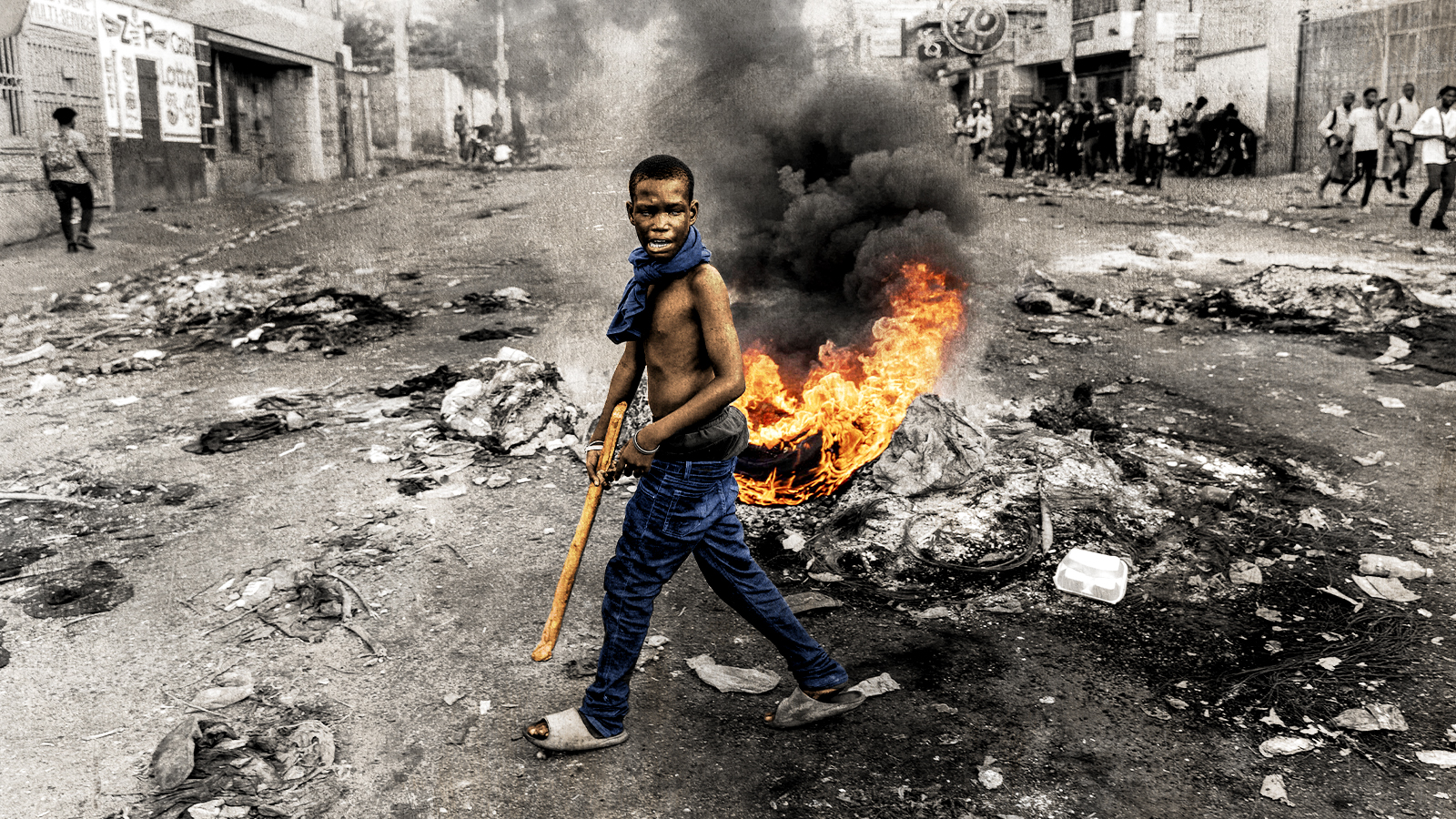
A free daily email with the biggest news stories of the day – and the best features from TheWeek.com
You are now subscribed
Your newsletter sign-up was successful
The small Caribbean nation of Haiti continues to face a slew of deep-seated humanitarian crises, with NGOs warning that the country could be on the verge of a complete societal collapse. Haitian officials have appealed to the international community for outside assistance, and while some have answered the call, there is still a barrage of issues, including supply shortages, rampant gang violence, and famine that threatens to derail foreign aid.
Humanitarian crises throughout Haiti are sadly not new, and there are a number of factors that have caused the country to reach this breaking point. Here's everything you need to know:
What is the driving force behind the humanitarian crisis?
Haiti has long suffered from poverty and economic hardships, stemming from massive external debt to its former French colonizers as well as decades of political instability. It remains one of the world's poorest nations and was ranked 163 out of 191 countries in the 2022 Human Development Index. However, the current blight facing the nation was set into motion this past summer, when armed gangs began seizing control of areas throughout the nation.
The Week
Escape your echo chamber. Get the facts behind the news, plus analysis from multiple perspectives.

Sign up for The Week's Free Newsletters
From our morning news briefing to a weekly Good News Newsletter, get the best of The Week delivered directly to your inbox.
From our morning news briefing to a weekly Good News Newsletter, get the best of The Week delivered directly to your inbox.
Most of this trouble was centered in Haiti's capital, Port-au-Prince, where a coalition of gangs called the G9 have taken de facto control of much of the city. While gang violence has been a historic problem, the assassination of Haitian President Jovenel Moise in 2021 plunged the country into chaos and created a vacuum that allowed gangs to seize power.
The humanitarian crisis began when G9 created a blockade around Varreux, one of the nation's most critical fuel terminals. This resulted in mass shortages of goods such as food, water, and other basic necessities. The blockade came in response to an announcement from Haitian Prime Minister Ariel Henry that his government would be ending fuel subsidies. G9 surrounded Varreux in protest and demanded Henry's resignation, though he remains in power.
What problems has the blockade caused?
Cutting off the Varreux terminal has had a domino effect on the nation, choking the country's supply chain and causing problems in numerous sectors of the economy. Reuters reported that most Haitian economic activity has come to a standstill as a result.
Beyond this, there have been reports of hospitals across the country being forced to shut down due to the supply shortage, as most of them are powered by diesel generators — a commodity that is no longer available. This has led to a whole host of problems within a nation that already struggles to provide adequate medical care, specifically due to the rampant diseases that are also currently plaguing Haiti.
A free daily email with the biggest news stories of the day – and the best features from TheWeek.com
Violence against children, rape, looting, civil unrest, and devastating levels of hunger have also become the norm within the country. More than 4 million people face food insecurity, according to the United Nations, with the U.N. deeming Haiti to be in a Level 5, or "catastrophic," phase of hunger for the first time in its history.
People living in Port-au-Prince additionally told Reuters that strong anti-government protests have often devolved into violence, with shootouts between rival gangs and law enforcement becoming a daily occurrence.
What other factors have contributed to the Haitian crisis?
Sadly, there have been a number of other variables that have added additional angst to the people of Haiti. One of the most prominent is the aforementioned diseases that are sweeping across the country — most notably, a deadly outbreak of cholera that has upticked in recent weeks.
According to the World Health Organization, cholera is an acute infection "caused by ingestion of food or water contaminated with the bacterium Vibrio cholerae." The crumbling infrastructure in Haiti, combined with the lack of clean drinking water, led to a massive spread of the disease starting in October. CBC News reported that at least 35 people have died and more than 600 people have gotten sick with cholera since the outbreak began.
Outbreaks of cholera have particularly been seen throughout the Haitian prison systems, where at least 200 of these cases are thought to have originated. One former inmate told CBC News that the country's main prison in Port-au-Prince had "the most unsanitary conditions you can think of. There's no running water ... the toilet is practically a hole in the ground that runs off into the outside — there's no sewage system."
If all of this wasn't bad enough, Haiti — and the Caribbean in general — is smack in the middle of earthquake territory, and Haiti in particular has become known for its devastating quakes. One such earthquake occurred in Aug. 2021, a 7.2 magnitude rumble that killed over 2,000 people and left more than 12,000 injured. Nearly 150,000 buildings throughout the country were destroyed in what would become the year's deadliest natural disaster, and the country was still in the midst of a massive recovery effort when this latest crisis began to unfold.
What is being done to try and help?
There have been calls for foreign intervention from both around the world and from within Haiti. The United States in particular has been urged by some to weigh in on the affair, and the Biden administration sent a delegation to the country to work on developing anti-gang strategies. The U.S. is also reportedly considering the plea from Prime Minister Henry to provide armed intervention, and has already accelerated the deployment of humanitarian aid to the nation.
While the U.S. has taken steps to impose massive visa restrictions in an effort to put pressure on the gangs, the Biden administration has been mostly uncommitted one way or another on armed intervention. It is easy to see why, especially since foreign meddling in Haitian affairs has often caused more harm than good, many times because of the Western assumption that Haiti is unable to govern itself. This plays in line with a long history of American leaders being reluctant to send troops to the country.
Despite what seems to be reluctance among some in the international community, the United Nations has taken a more direct approach, and urged countries around the world to assist Haiti via the military if necessary. It seems the U.S. may finally be getting on board with this idea as well, as The Washington Post obtained a copy of a federal government resolution to the U.N. pressuring the body to assemble "a multinational rapid action force." This marks the first real sign that the United States may be willing to involve itself in potential intervention in Haiti that could include a militarized component.
Justin Klawans has worked as a staff writer at The Week since 2022. He began his career covering local news before joining Newsweek as a breaking news reporter, where he wrote about politics, national and global affairs, business, crime, sports, film, television and other news. Justin has also freelanced for outlets including Collider and United Press International.
-
 Will increasing tensions with Iran boil over into war?
Will increasing tensions with Iran boil over into war?Today’s Big Question President Donald Trump has recently been threatening the country
-
 Corruption: The spy sheikh and the president
Corruption: The spy sheikh and the presidentFeature Trump is at the center of another scandal
-
 Putin’s shadow war
Putin’s shadow warFeature The Kremlin is waging a campaign of sabotage and subversion against Ukraine’s allies in the West
-
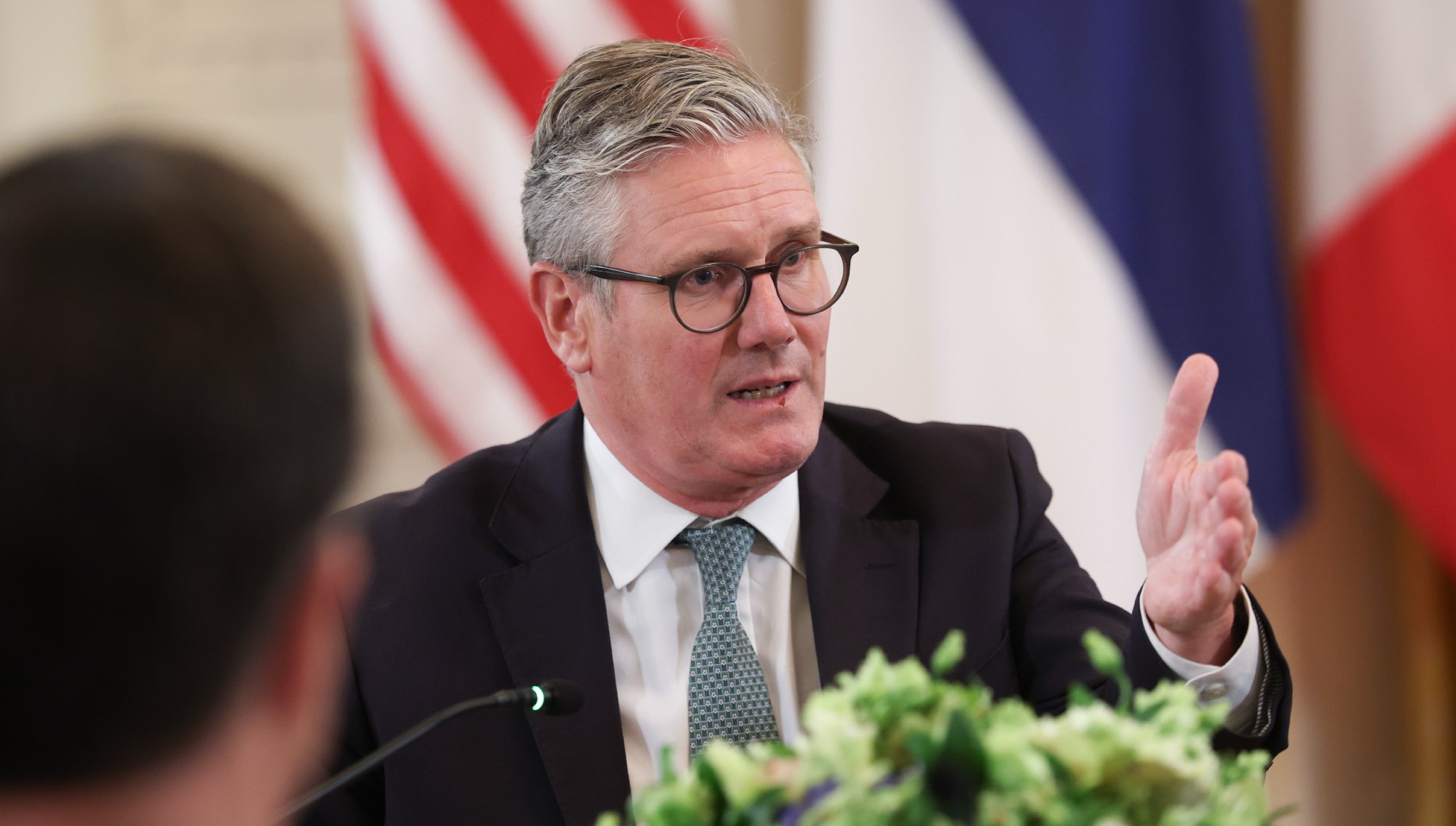 Should Britain withdraw from the European Convention on Human Rights?
Should Britain withdraw from the European Convention on Human Rights?Talking Point With calls now coming from Labour grandees as well as Nigel Farage and the Tories, departure from the ECHR 'is starting to feel inevitable'
-
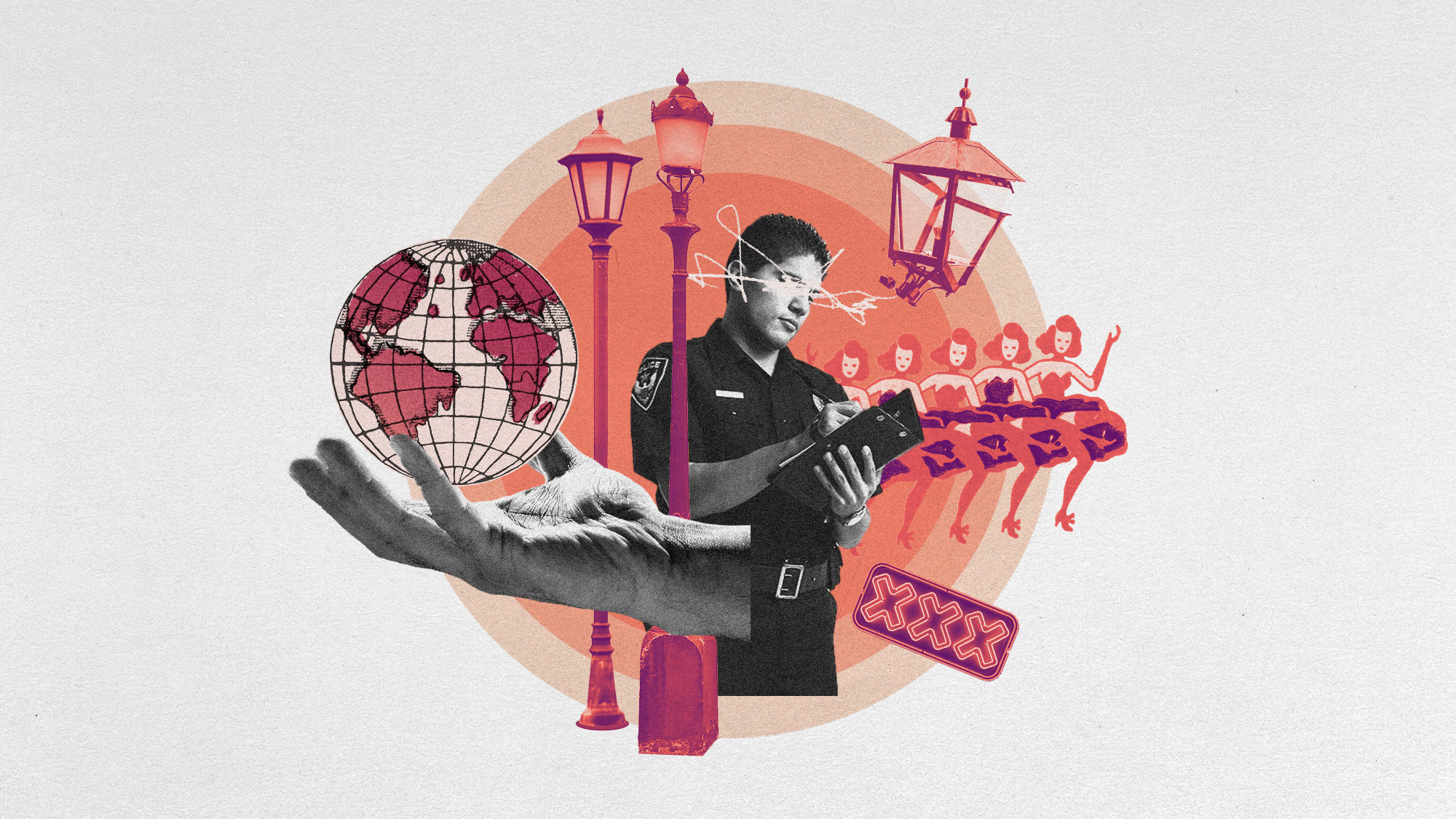 The state of sex work legalization around the world
The state of sex work legalization around the worldIn Depth The world's oldest profession has come a long way, but some say it is not enough
-
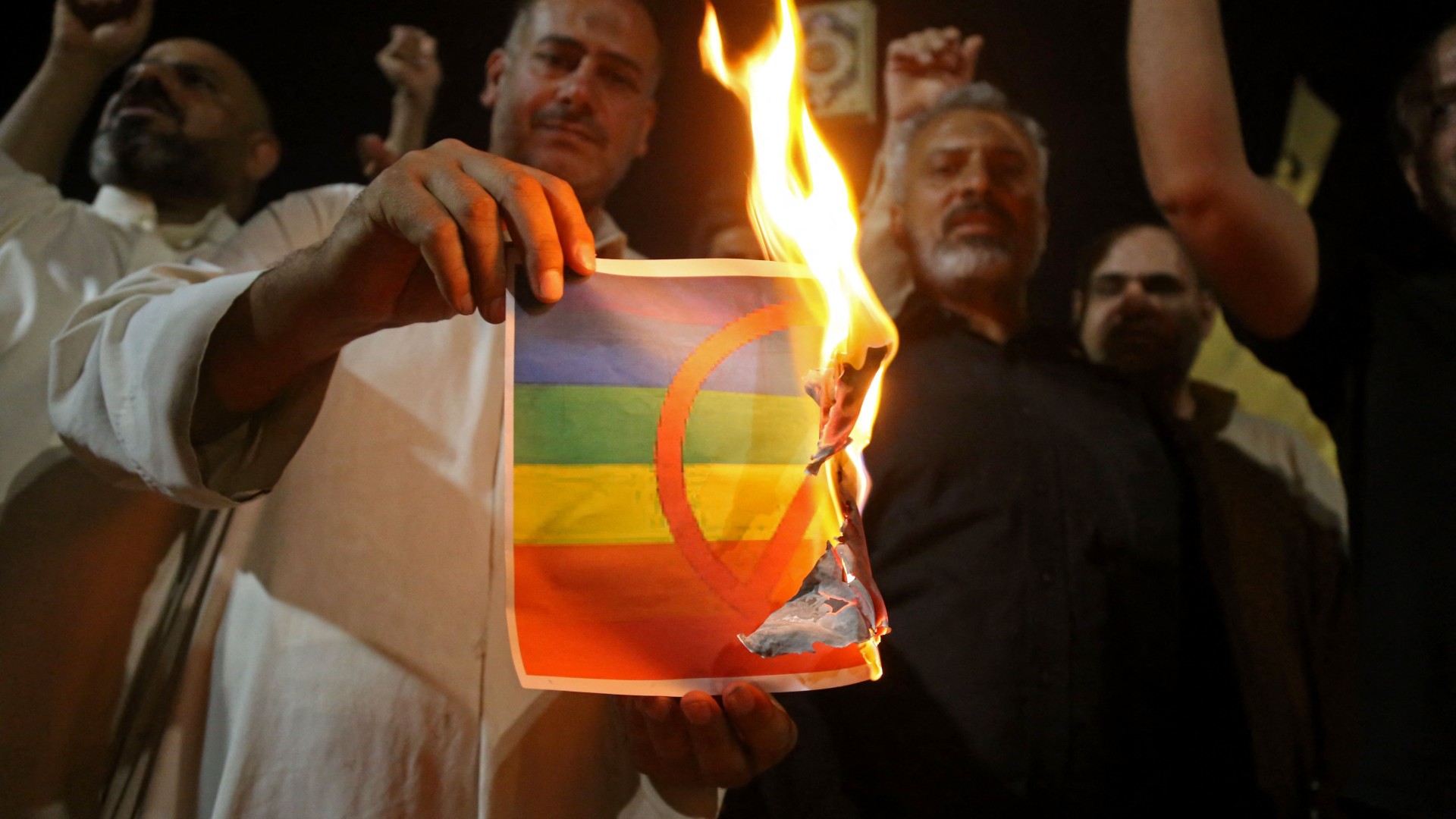 LGBTQ+ rights in Iraq: how morality laws ramped up
LGBTQ+ rights in Iraq: how morality laws ramped upThe Explainer Same-sex relationships and gender reassignment surgery are now criminalised in latest attack on targeted community
-
 Is the Comstock Act back from the dead?
Is the Comstock Act back from the dead?Speed Read How a 19th-century law may end access to the abortion pill
-
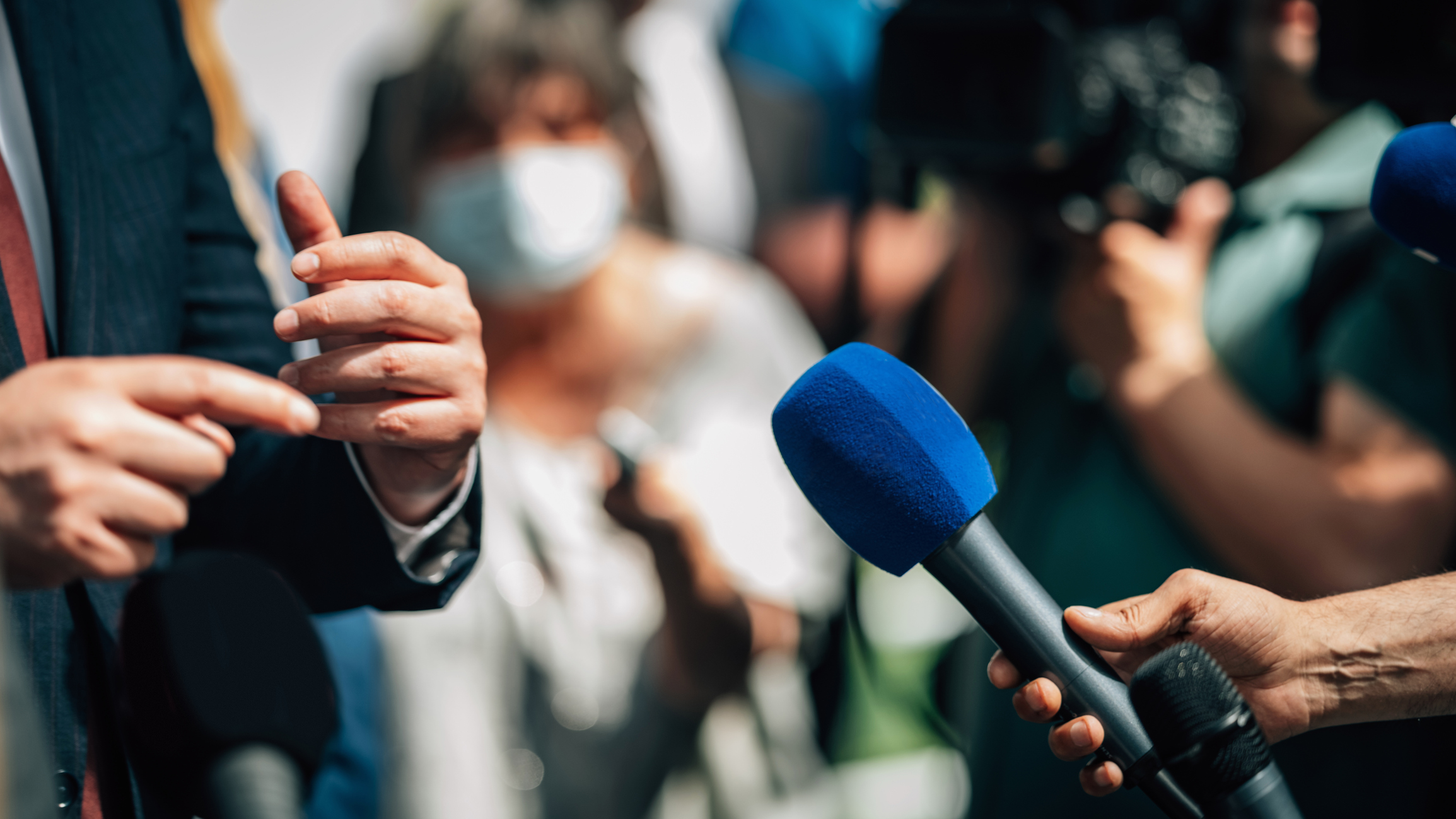 Targeting the press
Targeting the pressSpeed Read Some public officials want to roll back long-standing legal protections for journalists. Might they succeed?
-
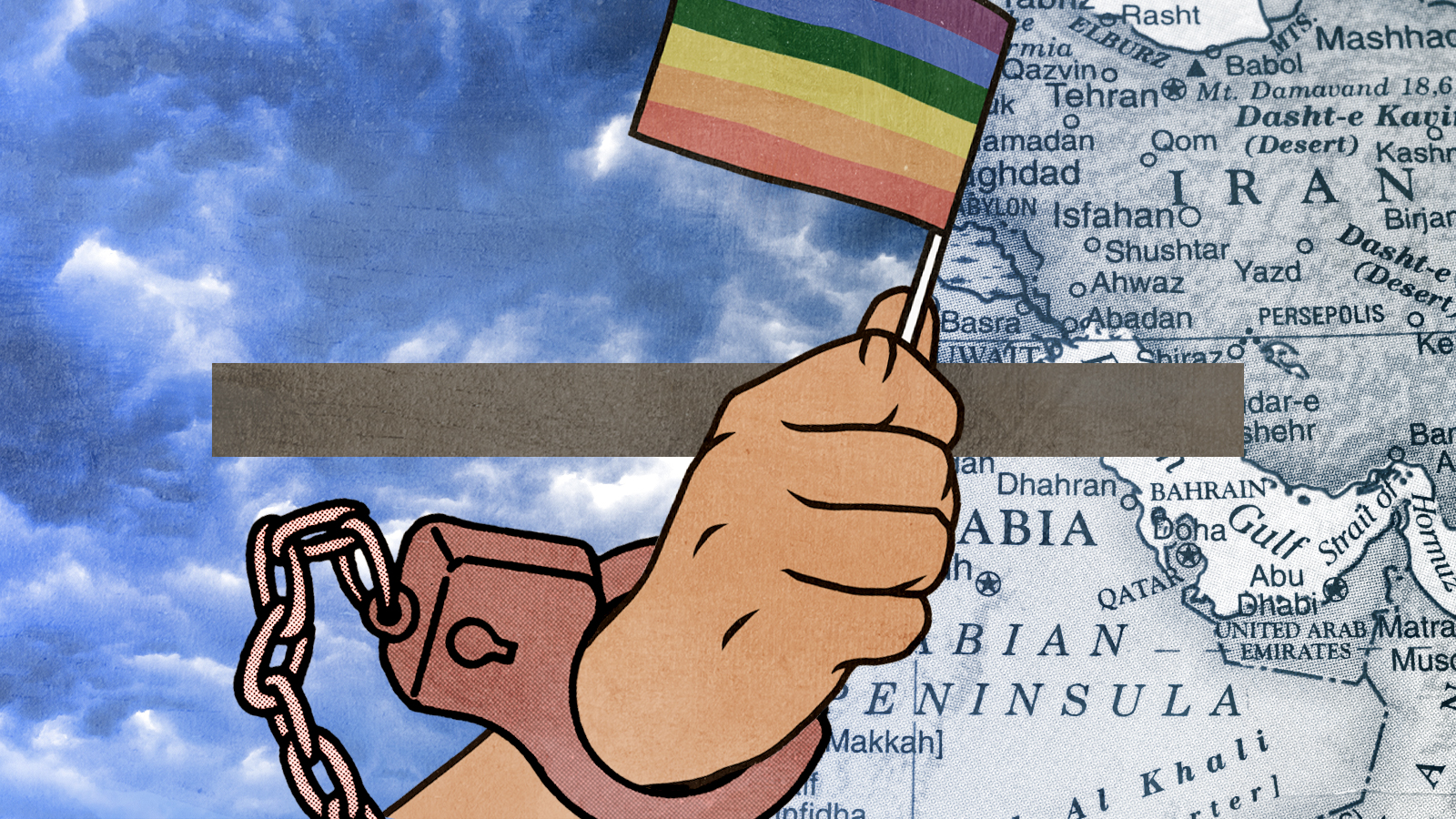 The dangers faced by LGBTQ people in the Middle East
The dangers faced by LGBTQ people in the Middle EastSpeed Read Why do so many Middle Eastern countries have anti-LGBTQ laws, and what can be done to make a change?
-
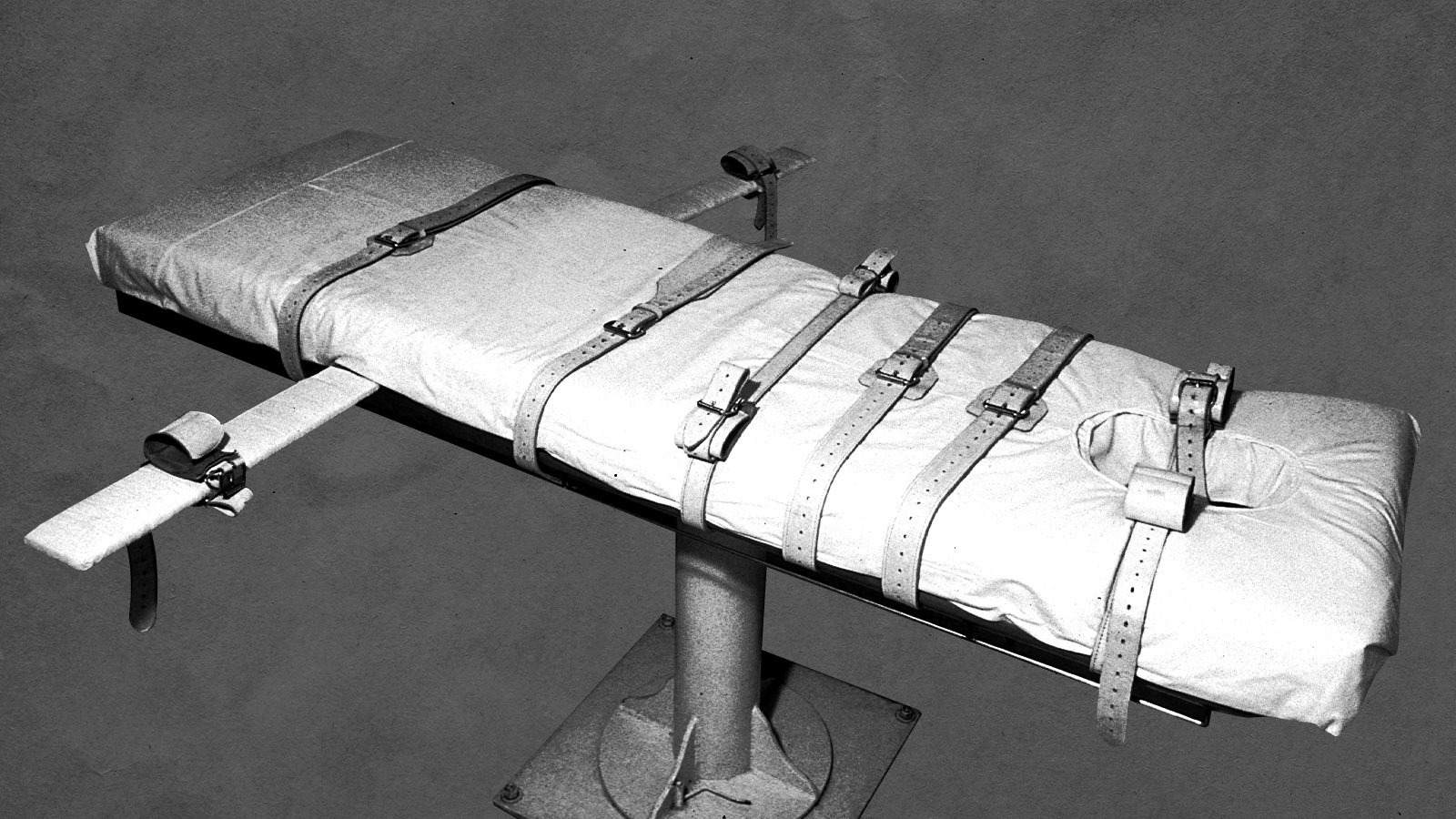 Why is Alabama pausing its executions?
Why is Alabama pausing its executions?Speed Read Many states are struggling to carry out the death penalty
-
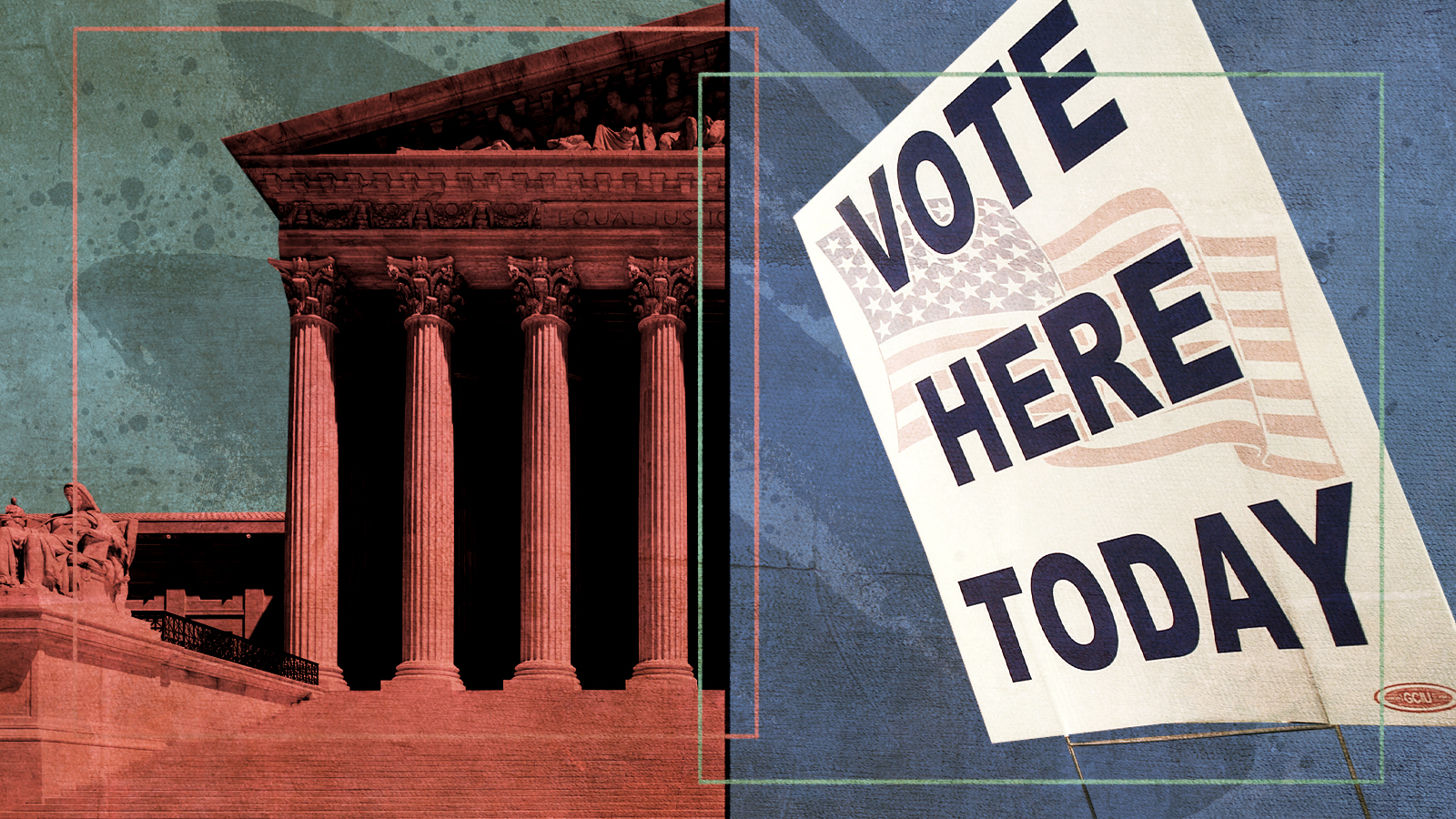 Will abortion decide the 2024 presidential race?
Will abortion decide the 2024 presidential race?Speed Read After Dobbs and the midterm elections, the landscape has shifted
